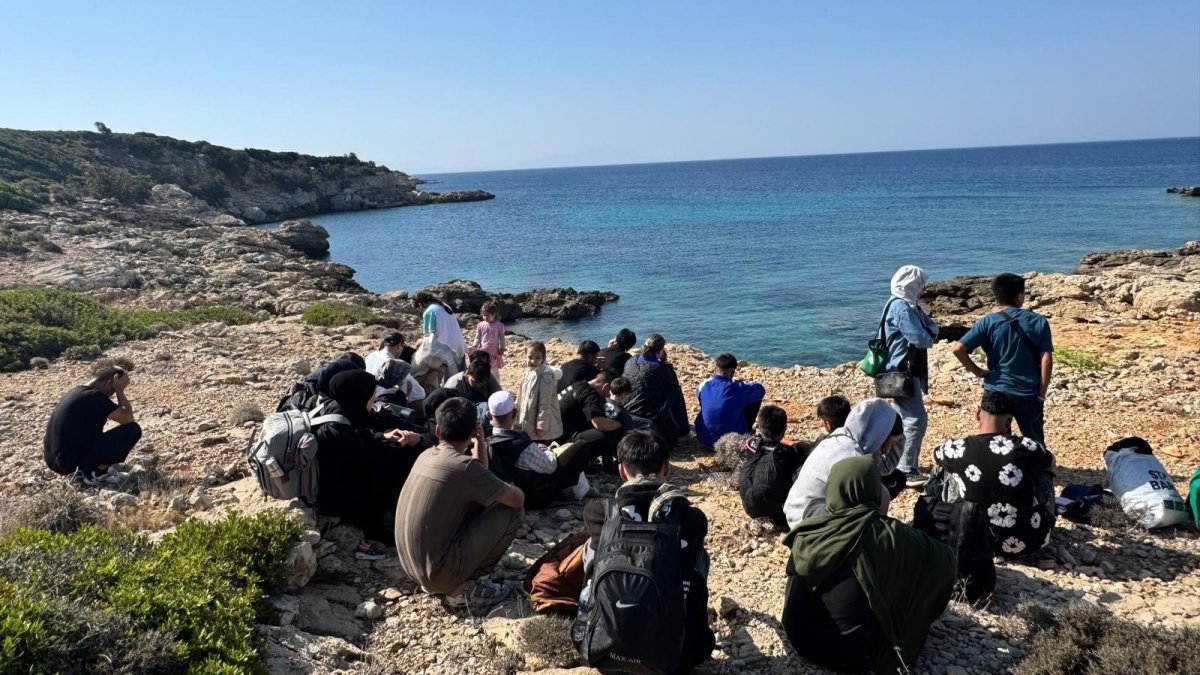Irregular migration remains a pressing issue for Türkiye, situated between Europe and Asia, and is often viewed as a transit point to Europe by migrants from Africa. At the height of the so-called migration crisis in the early 2010s, the country saw thousands of people braving lethal risks to cross into Greece, the main gateway to Europe. The civil war in neighboring Syria worsened the situation and migrant deaths, especially in the treacherous waters of the Aegean Sea, increased.
Although the number of migrants has dwindled, Türkiye still faces a relative influx of migrants from various countries, including African nations and Afghanistan. Authorities, however, are more cautious. The government boasts that its migration management policy, especially tackling the influx of Syrian refugees and migrants, is exemplary and humane. This migration management received a significant boost with “mobile migration points” that allow speedy checks of foreigners suspected of being irregular migrants. The “points” are vehicles deployed at hot spots for migrants, from the country’s most crowded city, Istanbul, to Izmir, a hub for irregular migrants due to its proximity to the Greek islands. The number of points now stands at 375 and authorities said more than 2.4 million foreigners were checked at the points, and 104,767 among them were identified as irregular migrants.
Elsewhere, the Interior Ministry stepped up its crackdown on migrant smugglers, exploiting desperate travelers from abroad who are charged thousands of euros or dollars to “facilitate” their infiltration into Europe. This year alone, 2,719 smugglers who arranged the trip of migrants to Türkiye and/or tricked them into boarding unsafe dinghies in return for hefty sums of money were arrested.
Figures by the Interior Ministry show authorities launched 4,125 operations this year so far against migrant smuggling and detained 7,062 smuggling suspects.
The number of deportations also rose. In 2023, 130,000 irregular migrants were deported, while this number rose to 140,000 in 2024. Türkiye hosts 32 centers in 25 cities with a capacity of 18,780 people to house irregular migrants marked for deportation.
Last Thursday, the country agreed to step up cooperation against illegal migration, particularly from Libya, during a visit by Foreign Minister Hakan Fidan to Italy.
Italian Foreign Minister Antonio Tajani and Fidan signed an “operational document” providing for closer cooperation between their coast guards to combat human trafficking and transnational organised crime, Tajani said at a joint press conference in Rome. “This will prove very useful in Libya, particularly in preventing the departure” of illegal migrants to Europe, he said. Libya is a key transit country for thousands of migrants seeking to reach Europe by sea each year. “We will work together to train law enforcement agencies to dismantle criminal networks in the Mediterranean,” Tajani said.
Fidan said he was determined to “strengthen the strategic partnership” between Italy and Türkiye, while emphasising a need to work toward a political process in Libya to guarantee its “stability.” “Our two countries have an interest in Libya’s stability,” Tajani added.
In August, President Recep Tayyip Erdoğan hosted a mini-summit in Istanbul about migration and stability in Libya, attended by Italian Prime Minister Georgia Meloni and Libya’s Abdelhamid Dbeiba.
Italy is already party to a 2016 EU-wide deal with Türkiye on irregular migration.
The deal between Brussels and Ankara has seen the EU pay Ankara billions of euros in exchange for Türkiye taking back irregular migrants reaching Europe. A press release on “operational proposals” published by the Italian Foreign Ministry on Thursday said Rome and Ankara would “consider working together and coordinating efforts in combating human trafficking and managing migration according to international standards.” It also said they were considering “providing training to the law-enforcement agencies of requesting parties on organised crime related to migrant smuggling and human trafficking” as well as investigations.

The Daily Sabah Newsletter
Keep up to date with what’s happening in Turkey,
it’s region and the world.
SIGN ME UP
You can unsubscribe at any time. By signing up you are agreeing to our Terms of Use and Privacy Policy.
This site is protected by reCAPTCHA and the Google Privacy Policy and Terms of Service apply.
